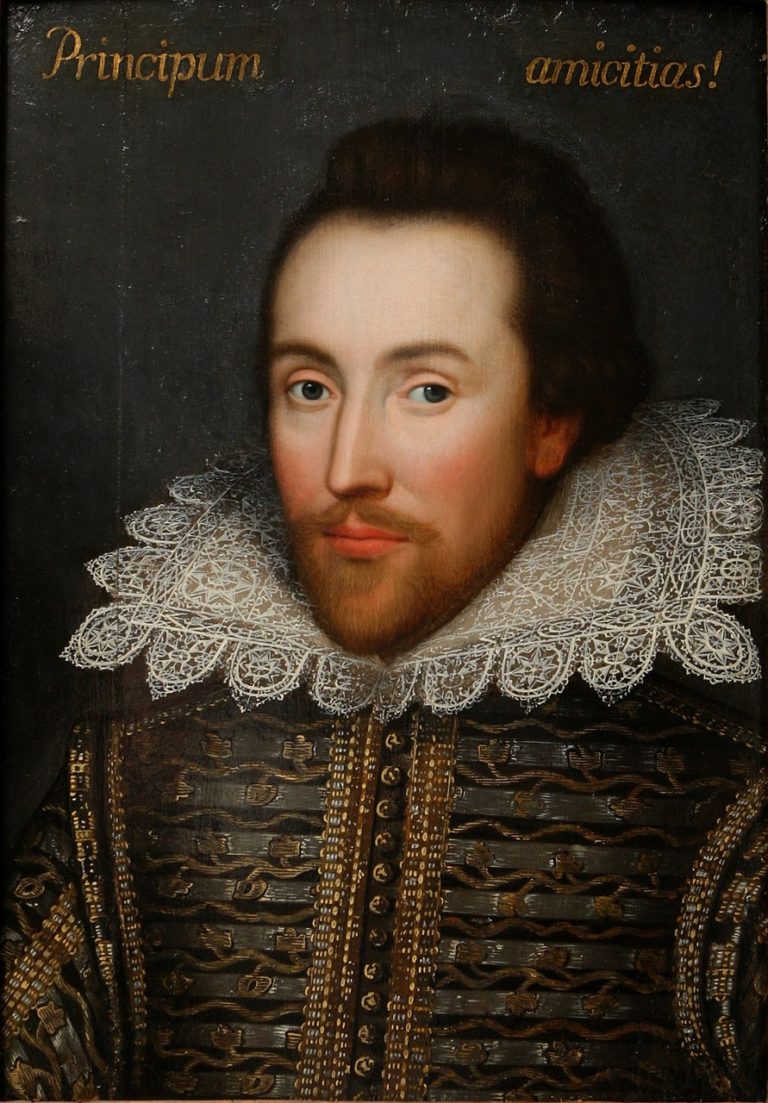William Shakespeare Conspiracy Theories
William Shakespeare ticks all the boxes in terms of a Conspiracy Theory Candidate. First off little is known about him, and secondly, he is a world-renowned figure. Therefore people will postulate ideas to fill in gaps which there is no proof of, yet which could account for many unaccounted questions about William Shakespeare. These ideas grow into theories which take off though they may have no basis in reality.
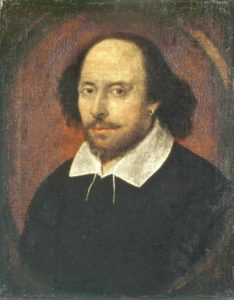
The Shakespeare conspiracy theories revolve around the idea that Shakespeare himself did not write any plays. Most of them make reference to the fact that Shakespeare grew up in a poor, backward town of Stratford upon Avon, had no education and money, yet his plays revealed much of courtly and foreign affairs, including aristocratic sports such as hunting, fowling and tennis, and descriptions of courtly life in intimate detail. There is no documentation of Shakespeare attending any educational facility. No letters or signed documents of Shakespeare exist. His surname was actually written differently on literary and nonliterary documents – Shakespear, Shake Spear, ShakesSpeares, Shake-Spear, etc. The language used in Shakespeare’s will is unpoetic and makes no reference to personal works or essays. And All other members of William’s family were illiterate.
“ So far as anybody actually knows and can prove, Shakespeare of Stratford-on-Avon never wrote a play in his life. ” – Mark Twain
1. Sir Francis Bacon
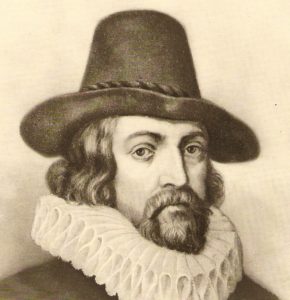
Is Shakespeare, Bacon? There is a theory going around that the plays attributed to Shakespeare were actually written by Sir Francis Bacon. Bacon was a philosopher, essayist, and scientist and has been called the founding father of empiricism, that scientific knowledge should be based on observations deduced from external events. This eventually led to the scientific method for approaching and solving problems in today’s world. Various ideas are given with regards as to why Bacon would have wanted Shakespeare to take over as a front for his plays. Some suggest that at the time being a playwright was not seen as noble or artistic and would have hindered Bacon’s political and scientific career. The theory is based on the fact that many ideas appear in both Bacon’s writing and Shakespeare’s plays. Some even claim that memoirs and biographies allude to the fact that the plays of Shakespeare were in fact produced by Bacon. However, academics generally reject this theory.
The “Baconian Theory” is not a modern one, but actually originated in the 19th Century. The theory was first published in a 16-page pamphlet called “Was Lord Bacon the Author of Shakespeare’s plays”, written by William Henry Smith in 1856. The pamphlet suggested that letters between Shakespeare and Bacon hinted that Bacon might be the actual author of the works. The theory took off from here, with other writers such as Delia Bacon, John Bruce and Mary Fearon propagating the idea that Bacon was the original producer.
Shakespeare Conspiracy & Baconian Cryptology
In 1880 US Congressman Ignatius L. Donnelly started the Baconian Cryptology theory. He argued that Bacon revealed his authorship of Shakespeare’s plays through means of hidden ciphers within the text. This was the start of much cipher theory in relation to Francis Bacon and William Shakespeare. Orville Ward Owen published a new book titled Sir Francis Bacon’s Cipher Story in 1893, which claimed that Bacon was Queen Elizabeth’s son, information hidden by means of a cipher in the works of Bacon/Shakespeare. Elizabeth Gallup built on Owen’s work, arguing for a bilateral cipher, agreeing with Owen that Bacon was indeed the son of Queen Elizabeth. Many other writers took up the cipher theory, including Alfred Dodd and C.Y.C Dawbarn. In 1916 a court judge effectively ruled that ciphers identified by Elizabeth Gallup did, in fact, reveal Bacon to be the author of the Shakespearean Canon. However, In 1957 William and Elizabeth Freidman, two expert cryptologists, undertook a study of all the proposed ciphers combined and arrived at the conclusion that there was no hidden message in the works of Shakespeare by means of a Cipher. None of the Ciphers claimed to exist by the Baconians were valid.
2. Edward De Vere
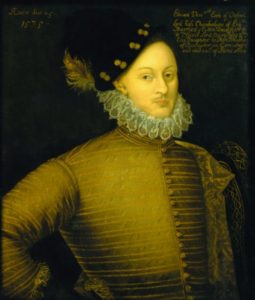
This theory is known as the Oxfordian Theory of Shakespeare authorship, contending that it was, in fact, Edmund de Vere who wrote the plays of Shakespeare. De Vere was the 17th Earl of Oxford. The rationale behind the theory is that Shakespeare is a pseudonym for De Vere to operate under, as at the time aristocrats did not generally publish plays or poems and also to escape the consequences of the subject matter discussed. De Vere is rumored to have been nicknamed “Spear Shaker” at court and lived in the same district as Shakespeare. Shakespeare wrote a total of 37 plays and 134 sonnets.
The Oxfordian Theory is not well developed, with very little evidence to back it up. De Vere has mentioned in Delia Bacon’s book The Philosophy of Shakespeare’s plays unfolded, as a high born poet, and Oxfordians believe this is enough to justify De Vere’s inclusion in the Shakespearean author committee mentioned in the book. The Oxford theory soon took over the Baconian theory. This was mainly due to the book Shakespeare Identified in Edward de Vere, (De Vere being the 17th Earl of Oxford) written by Thomas Looney. Looney made reference to the fact that the characters in the plays were not a match to the personality of Shakespeare. For example, the hero’s of the plays were often free spending figures, whereas Shakespeare was identified as someone who took acute care of his finances. Looney concluded that the characters and ideas in the works of Shakespeare were much more suited to the disposition of the Earl of Oxford. Despite the lack of evidence or rationality, many were onboard with the Oxfordian theory. Sigmund Freud, Marjorie Bowen, and many 20th century celebrities all subscribed to the Oxfordian theory of Shakespearean authorship. It soon took over in popularity from the Baconian theory. Interpreting plays as autobiographical and then deducing the author from this interpretation is a method seen by the vast majority of literary specialists as unreliable. One of the major issues with the Oxfordian theory is that De Vere actually died in 1604 before 12 Shakespearean plays were actually composed. The Oxfordian response to this is that the dating of the plays is not accurate. In The Shakespeare Claimants, a 1962 examination of the authorship question, H. N. Gibson concluded that “. . . on analysis, the Oxfordian case appears to me a very weak one” Oxfordians have also tried to attribute many Non-Shakespearean works to Edmund De Vere.
The Oxfordian theory traveled all the way to the Supreme Court of the United States. In 1987 three-justice of the Supreme Court took a one-day moot trial to hear the case. The burden of proof was on the Oxfordians to prove that De Vere was, in fact, the author of Shakespeare. Literary experts were not represented. The judges concluded that the Oxfordian theory was based on a conspiracy theory, one which typically relies on a group of people colluding together in such a way that the proof cannot be obtained. They also concluded that the reasons given for the theory were incoherent and unpersuasive. A repeat of the case took place in England in 1988, and the High Lords of the UK confirmed the American verdict.
3. Christopher Marlowe
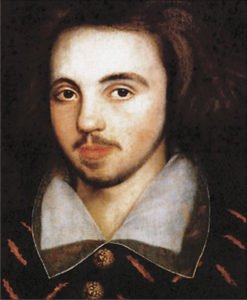
The Marlovian theory of Shakespearean ownership indicates that Christopher Marlowe did not actually die but faked his own death and wrote his works under the pseudonym, William Shakespeare. There is evidence as to why he would actually fake his own death. At the time he was accused of converting a number of people to atheism, and this was a serious offense guaranteed to result in execution. The first time the name of Shakespeare was associated with a literary piece occurred two weeks after the death of Marlowe. And it is accepted that Marlowe had friends in high places who could have arranged the faked death. And there are anomalies surrounding the death of Christopher Marlowe. Thus we have a theory which “fits” the bill but without any evidence supporting it.
The arguments against the Marlovian theory is that 16 jurors accepted the death of Christopher Marlowe as genuine and that there is no evidence of him after his death in 1593. Like all theories associated with the works of Shakespeare, there is no historical or academic record that evidences that Marlowe completed any of the works of Shakespeare. And while there is some similarity in their works, many have commented on the fact that Marlowe’s style, humor, weakness, strengths, and vocabulary are completely different from Shakespeare’s. The Marlovian theory was started initially in 1892 by T.W. White, followed up with a book by Willian Zeigler called It was Marlowe: a story of the secret of three centuries. There have since been many other books and essays promoting the Marlovian theory of Shakespearean authorship. In 2009 the International Marlowe-Shakespeare Society was founded.
The theory is like the others, considered fringe theories and highly unlikely. There is no evidence whatsoever to suggest that his death was faked. The only reason to believe it was faked is that he wrote Shakespeare. Therefore his death must have been faked, known as circular reasoning.
In quite an interesting progression, Oxford University Press have actually named Christopher Marlowe as a co-author for the three Henry VII Shakespearean plays. The method used for deducing authorship was by analyzing every word of each play and looking for patterns and clues. Mathematicians are involved in the process. However, this addition does not settle the question of Shakespearean authorship. Just because Oxford University Press puts their brand on a name does not prove anything significant, and as Shakespearean professor at the University of Warwick Carol Rutter states
“It will still be open for people to make up their own minds. I don’t think [Oxford University Press] putting their brand mark on an attribution settles the issue for most people .. I believe Shakespeare collaborated with all kinds of people, but I don’t believe Marlowe was one of them”
4. Other Candidates of Shakespeare Conspiracy
There are numerous other candidates for Shakespearean authorship such as Roger Manners, the Fifth Earl of Rutland. While put forward in 1907 by Karl Bleibtreu, the theory did not have the same following as the Marlovian, Oxfordian or Baconian theories of Shakespearean ownership. James Greenstreet put forward William Stanley, the Sixth Earl of Derby, as a candidate in 1891. A minor variant of the Oxford theory is the Prince Tudor Theory, which has received less attention, where De Vere is a literary genius who becomes the lover of Queen Elizabeth.
Conclusion
The theories that are contended have no basis in reality. Much is speculation from literary artists, who argue that the characters in the plays of Shakespeare do not fit with the personality of Shakespeare. This is obviously a very shaky branch to hang a theory off of, as it is entirely subjective and not at all verifiable. There is no concrete evidence to imply that anyone other that Shakespeare wrote his own works.
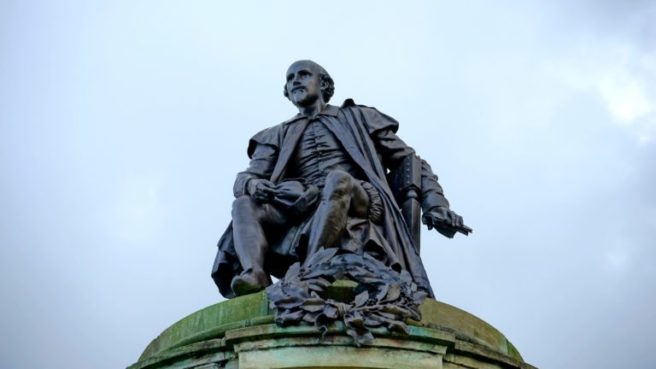
Practically all academic documentation of the type commonly believed to be the founding piece of evidence for the authorship of a literary work points to Shakespeare being the owner of his own plays. This includes title pages, testimonies from other poets and historians as well as official records. Many notable poets at the time described Shakespeare as an excellent poet “and of honest, and of an open, and free nature; had an excellent fancy; brave notions, and gentle expressions” [Ben Johnson, playwright, and poet]. The earlier quote from Mark Twain is actually false. By all conventional standards of proof, we can prove that Shakespeare is, in fact, the author of Shakespeare. It is up to the theorists to prove beyond reasonable doubt that Shakespeare was not the author of Shakespeare, which they were unable to do in two court cases of independent judges well versed in logic and reasoning.
However, the theorists contend that these documents are falsified, leaving the theory in the irreconcilable position where nothing can be proven. Much of the theories stem from the class division, with many of the wealthy aristocratic class unable to accept that a literary genius named William Shakespeare grew up in a poor and backward district and could write exceptionally well without being educated in an establishment such as Oxford.


